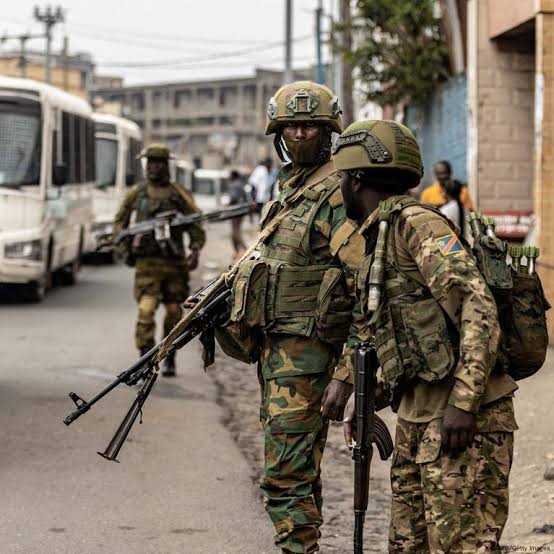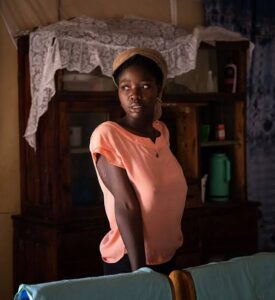According to the armed group and witnesses, Rwandan-backed M23 rebels moved into the heart of Bukavu, the second-biggest city in the eastern Democratic Republic of the Congo, on Sunday with minimal opposition from government forces.
Since capturing Goma in late January, the rebels have been attempting to take control of the vital city. If verified, Bukavu’s downfall would be the armed group’s biggest victory since it reignited an insurgency in east Congo that had been going on for ten years in 2022.
According to residents and a local official speaking on condition of anonymity because of security concerns, the rebels had moved into central Bukavu by early Sunday, although the Congolese presidency claimed late Saturday that its troops and allied forces still controlled the provincial capital.
M23 spokesperson Willy Ngoma told Reuters that the militia was present in the city and shared a picture of a group of fighters posing in Independence Square, the heart of the provincial capital, on the social media site X.
A request for comment was not immediately answered by the Congo’s government or army.
Fears of a wider regional conflict in a conflict rooted in tensions over power, identity, and resources dating back to the Rwandan genocide of the 1990s have been heightened by the rebels’ quick advance since the beginning of the year and the involvement of troops from neighboring countries.
Congo is the world’s leading producer of cobalt and tantalum, which are essential elements in batteries for cell phones and electric cars. Significant deposits of coltan, lithium, tin, tungsten, and gold can be found there, and it is the third-largest producer of copper in the world.
Residents of Bukavu reported on Sunday that they had witnessed M23 troops moving through central districts since the early hours of the morning without encountering any resistance. Two locals told Reuters that they heard sporadic gunfire coming from Camp Saio, the main military camp in Bukavu.
Read more: Thailand halts new gun permits to reduce crime
M23 fighters in fatigues were seen in videos confirmed by Reuters parading and interacting with residents in Independence Square and outside the provincial governor’s office. Some residents cheered and applauded the rebels as they arrived.
In a different video that the M23 posted, one of its military leaders orders a group of applauding citizens to evacuate the streets, claiming that operations were still going on.
“Return home. Commander Bernard Byamungu said, “After three hours, you can take a walk while we finish the job.”
SOLDIERS START LEAVING
A Congolese army officer told Reuters on Saturday that troops were leaving Bukavu to prevent “carnage” similar to that which occurred in Goma. The United Nations estimates that in the days before Goma’s capture, about 3,000 people were killed.
Due to the power outage caused by the soldiers’ slow departure in recent days, there was looting and a prison break on Saturday.
Some people in Bukavu have welcomed M23’s arrival, hoping the rebels will bring peace back to the area, according to South Kivu-based Congolese researcher Josaphat Musamba.
Fears of a larger conflict similar to the two that ravaged the region between 1996 and 2003, killing millions of people, have been heightened by the carnage in Goma and the presence of troops from Rwanda, Burundi, and Uganda in eastern Congo.
In the eastern provinces, an already serious humanitarian crisis has been made worse by the ongoing insurgency. The U.N. refugee agency warned on Friday that approximately 350,000 displaced people are without a roof over their heads due to the “rapidly deteriorating” situation.
In the unstable east of Congo, ethnic Tutsi-led rebel groups have long existed, with the well-equipped M23 being the most recent. The rebel group and Rwanda reject Congo’s government’s claim that it is a Rwandan proxy.






